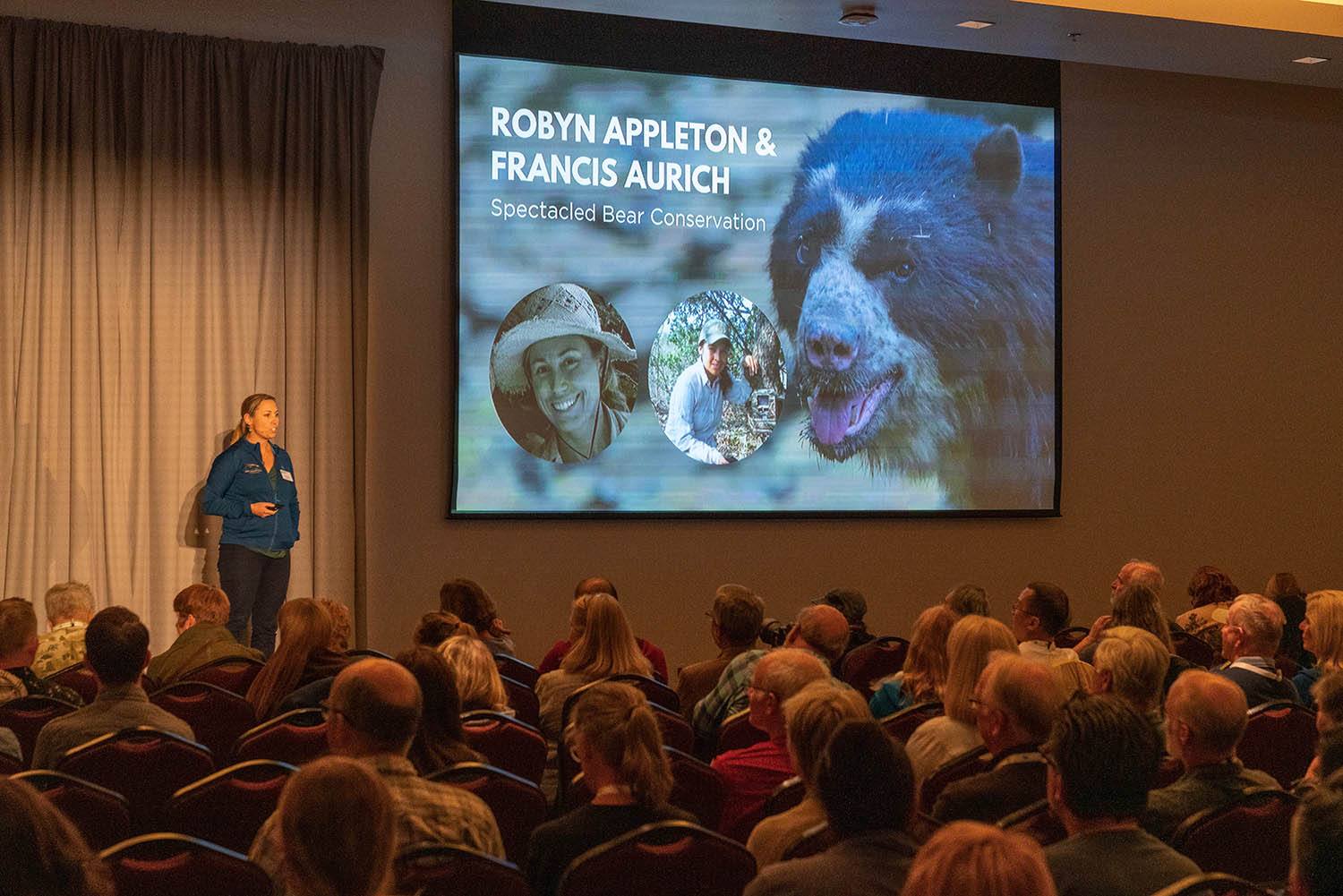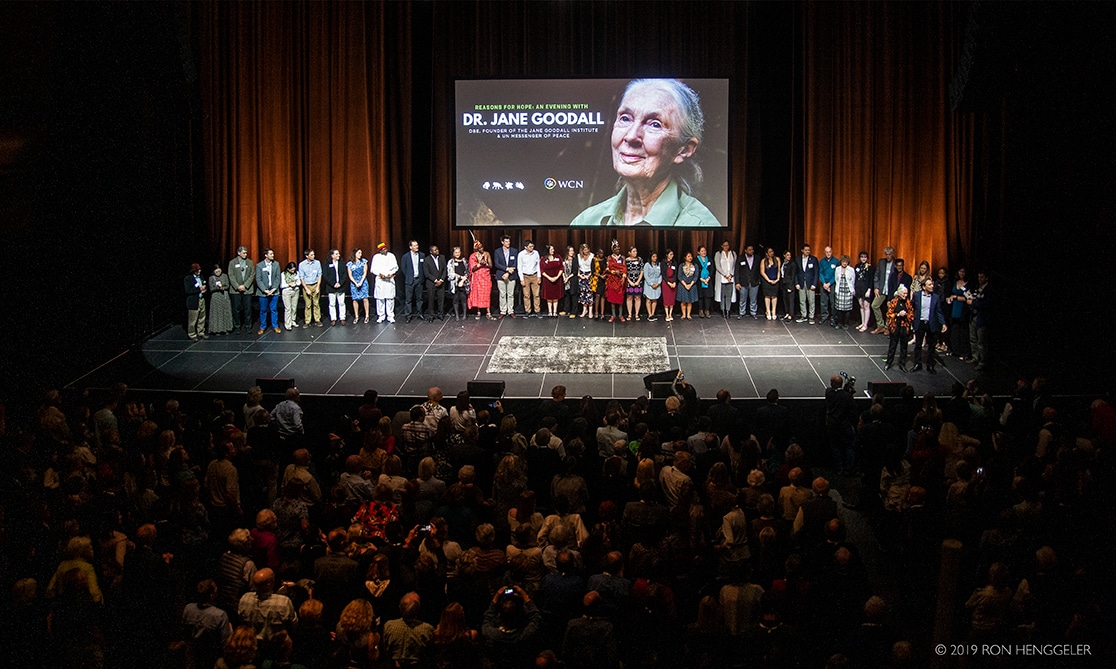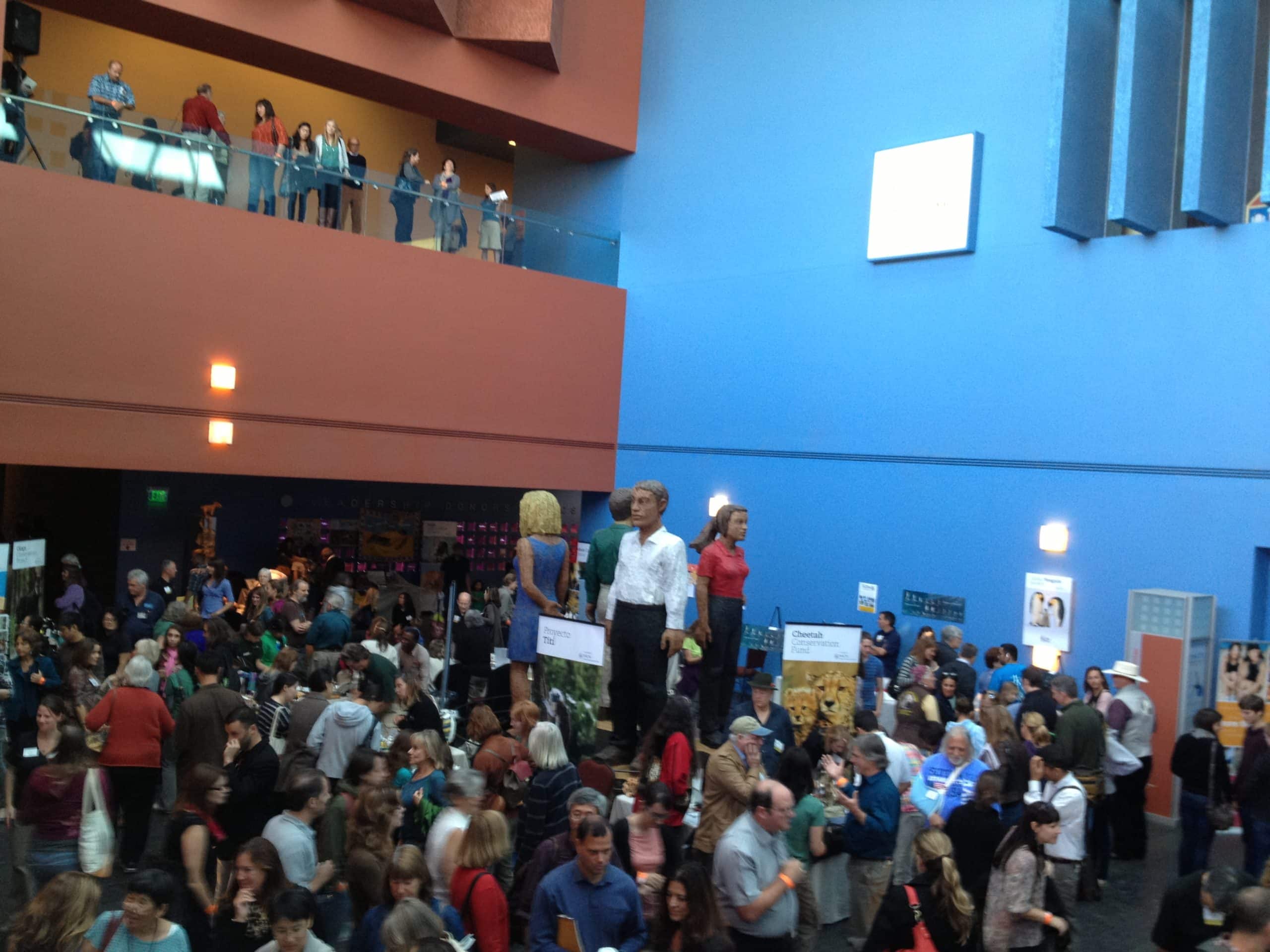Every October in San Francisco, California, over one thousand supporters of wildlife as well as representatives from one hundred global conservation organizations come together for the Wildlife Conservation Network’s (WCN) annual Wildlife Expo. It is a day of storytelling and relationship building, but most importantly, a day of inspiration and hope for wildlife.

Robyn Appleton from Spectacled Bear Conservation-Peru (SBC) presenting at WCN’s Fall 2019 Expo
We’re so often flooded with bad news of environmental catastrophe, that we can feel paralyzed. The United Nations (UN) recently published a global assessment of biodiversity, which showed that around one million animal and plant species are now threatened with extinction, many within decades, more than ever before in human history. It is easy to think there is nothing we can do, until you come face to face with inspiring conservationists in every part of the world dedicating their lives to protecting wildlife and the natural environment. Our Wildlife Conservation Expo gives supporters the chance to meet with world-renowned conservationists in person, hear their stories about protecting endangered wildlife around the world, connect with them one-on-one, and go home inspired.
Despite the UN’s drastic report, after a day at the Expo, you can’t help but walk away believing there is still time to act. This is how I feel every day at work with WCN. If we connect those passionate about supporting wildlife with those who are facing the day-to-day challenges to protect endangered species on the ground, there is hope. WCN’s approach is to create a network of conservation entrepreneurs from around the world. This network serves to provide support and inspiration for conservationists, because whether you’re protecting elephants in Kenya or penguins in Argentina, you share much of the same challenges. We shine a spotlight on those organizations having the most impact so that they can learn from one another. This may also help organizations to gain support from donors that might not have heard of their work otherwise. WCN’s in-depth, ongoing training and support to our Conservation Partners allows them to do what they do best: protect wildlife.
In addition to our brilliant Network of Partners, WCN also manages three Crisis and Recovery Funds, including the Elephant Crisis Fund, Lion Recovery Fund, and Pangolin Crisis Fund. Crisis and Recovery Funds invest in a wide breadth of projects aimed at protecting a threatened species across its entire habitat beyond a singular country. The Funds focus on collaboration and encourage everyone—from non-profits, to conservationists, to philanthropists—to work together to save wildlife. Crisis and Recovery Funds identify and vet the best ideas from any institution, regardless of their size or stature that are designed to stop a crisis and recover wildlife populations.
WCN’s core values are: collaboration, transparency, collegiality, innovation, generosity, warmth, and engagement. We also strive towards continual improvement of ourselves, remaining open to feedback on how to maximize our impact. In alignment with these values, WCN guarantees that 100% of all investments designated to a certain species from our donors make it to our conservation partners on the ground. Saving wildlife requires a collaborative spirit and it is as much about people as it is about animals. It’s the commitment of the people living alongside wildlife, the drive of conservationists protecting endangered species, and the passion of wildlife supporters that makes conservation successful.

Dr. Jane Goodall on stage introducing WCN’s network of conservation partners
In the words of Dr. Jane Goodall, “I am in awe of WCN. Bringing these amazing conservationists together in a network will do so much – and already has done so much – for wildlife everywhere.” However, the network only gets stronger with each additional person who joins. Each and every person can make a difference for wildlife; no matter who you are, no matter where you are, you can be involved, so please do! To stay in the loop on all things wildlife, sign up for WCN’s newsletter here.


